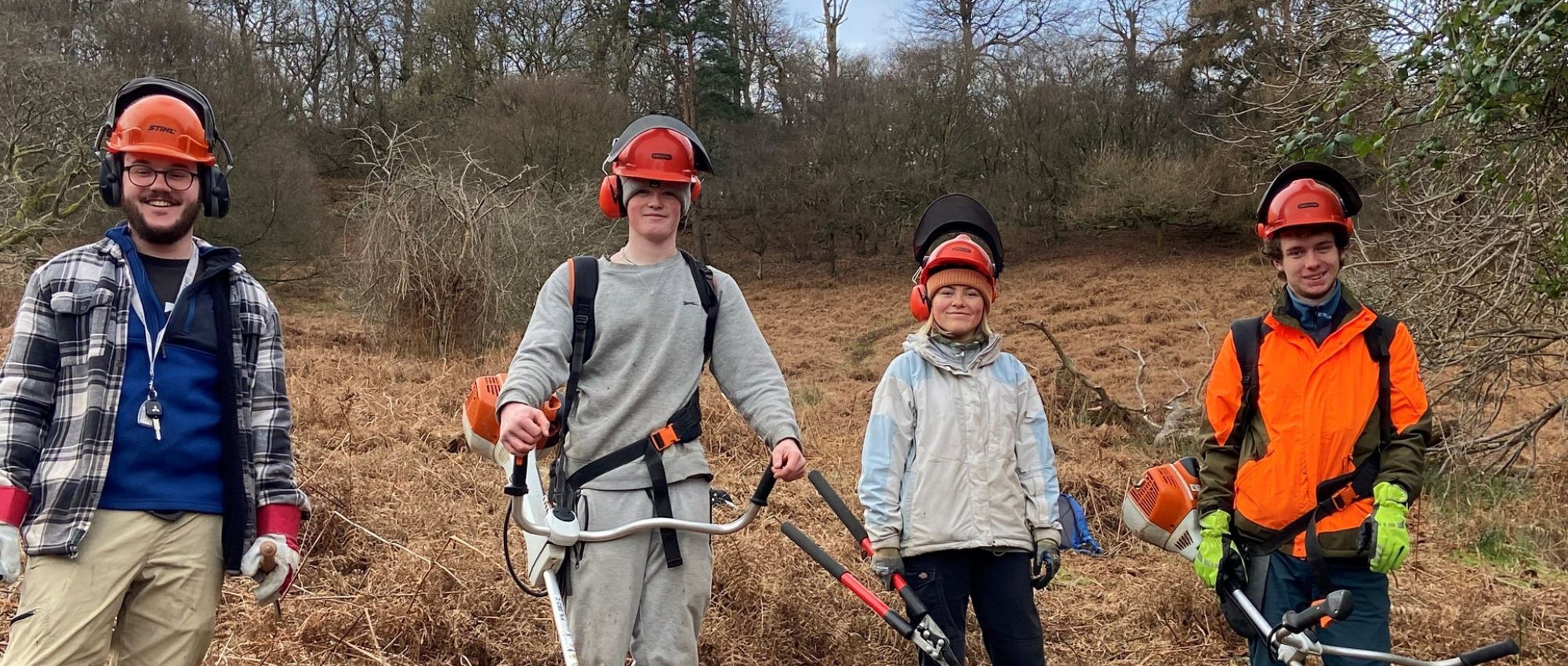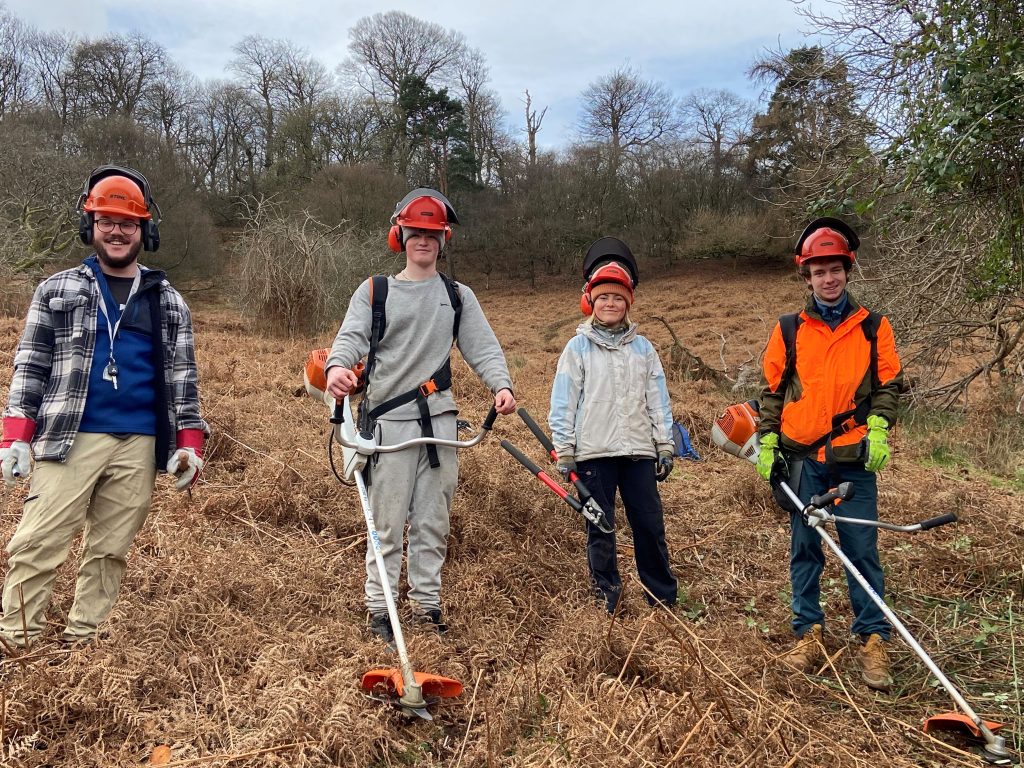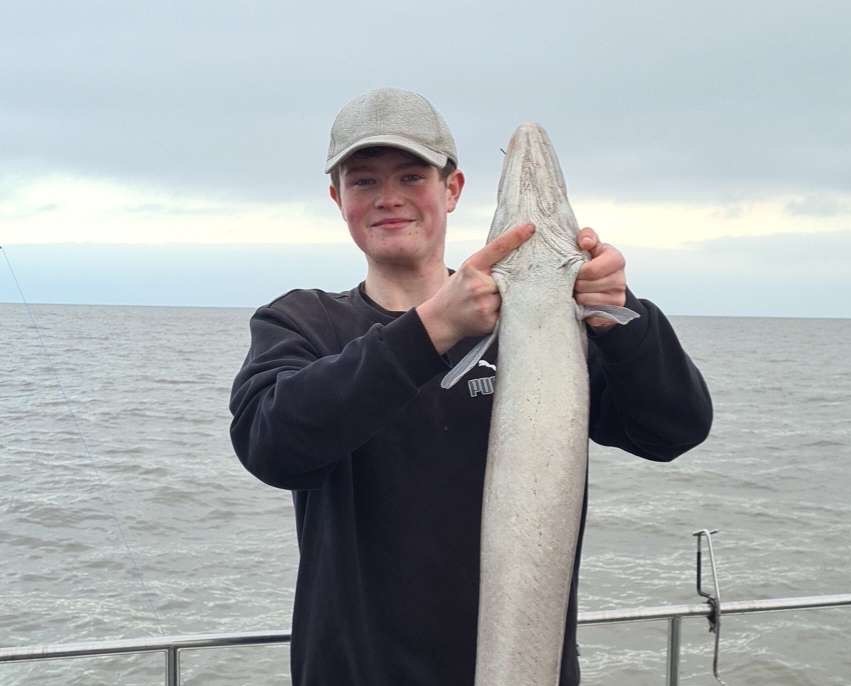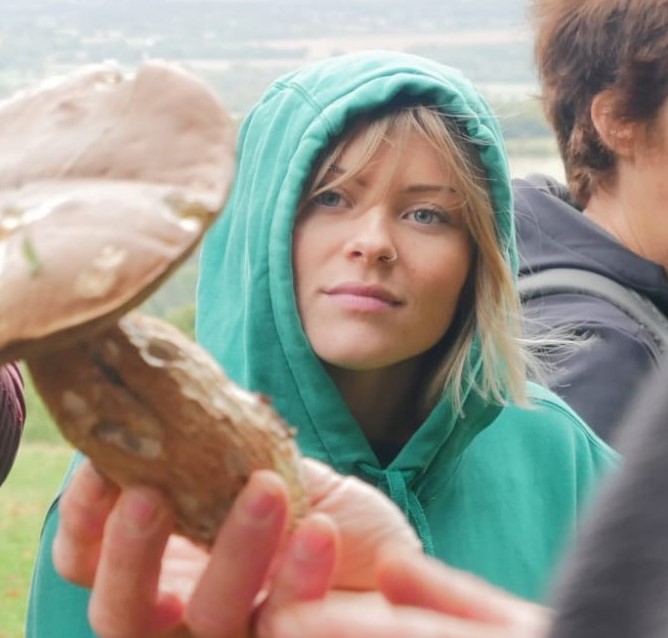1.6 Quantock Apprentices


The Quantock Apprentices project enabled three young people aged 18-22 to work with Young Somerset (our contracted delivery partner), and other organisations on the Quantocks, as apprentices for 15 months with the opportunity to gain a Level 2 qualification in Countryside Skills. Somerset as a large rural county has a wide range of opportunities for learning and working in the environmental and countryside sector. The apprentices have acquired knowledge, understanding and skills through “doing” and gained a clear idea of what working life will be like.
They’ve also gained qualifications in chainsaw and brushcutter use, tractor driving, and first aid.
Our apprentices started work in Autumn 2022 and the Level 2 course ended in December 2023. The team, led by their supervisor Matt Beedle, did invaluable work in and around the Quantocks, helping to fill the contractor shortage and providing us with the flexibility to get a wide range of small jobs done simply and cheaply. Having our own “in house” skilled labour force helped us achieve far more, more simply and flexibly, than any small works budget for contractors could have done.
Introducing the Apprentice Team…


Tom Ley-Sale


“I joined this course to explore more opportunities in conservation and to find more information about further employment within this job. I am a very active person who loves the outdoors and anything to do with fishing.”
Ella Bedford


“I wanted to become an apprentice with the QLPS as I wanted to gain as much work experience in conservation as I could, the scheme has given me such a variety of jobs working with lots of amazing people, I can’t wait to start working with protected species more closely and maybe getting a start on earning some licenses. In the summer I love to spend time with friends and family at the beach having bbqs, I also enjoy charity shopping at the weekends.”
Lewis Crabtree


“Born, and raised in Somerset I have always enjoy working outdoors and am interested in plants and gardening and wanted to learn more about them in person. I used to work as a carpenter and still enjoy working with wood in my spare time, including making wooden models.”
Supervised by Matthew Beedle


“I have always loved being emersed in nature and working in the outdoors. As a result, I have spent a lot my spare time exploring different areas of the Quantock Hills as a member of the public as well as a volunteer since moving to Somerset back in June of 2021. I saw this position as an opportunity to pass on my passion for conservation and the skills I have gained while working in countryside management whilst also gaining more of an appreciation for the fantastic work that takes place on the Hills.”
Mid year update
We are now 6 months in to the project, and the team have been working hard at developing their practical conservation skills.
“In the last six months of working for Young Somerset with QLPS, I have enjoyed every last bit but my favourite day would have to be passing my cross cutting and chainsaw maintenance course. This came in useful for the following days as we were thinning trees to produce more sunlight for the lower canopy and promote forest regeneration. Furthermore, I am looking forward to sitting my felling course because it is a very useful skill to have and this will also promote my future in tree surgery/ forestry.” – Tom Ley-Sale
“My most enjoyable moments so far being a countryside level 2 apprentice would have to be hedge planting, ring barking and learning how to survey.
At first I didn’t think much about hedge planting as it doesn’t seem complex or interesting, however, hedges can have a huge effect on our wildlife as they are used as passageways, food and shelter for an abundance of different species. . By using a variety of trees you can ensure that your hedge will be more reliable with added environmental benefits. For example by planting lots of different species your hedge is less impacted by tree diseases, if a whole hedge was one tree type it could be wiped out by one disease such as ash dieback. This process taught me the base of my knowledge about wildlife and how they can migrate from one site to another, as well as what we can do to help this process.
So far I have learned how to safely and legally search for dormice evidence but are yet to be successful. We did what’s called a dormice tunnel survey in which you can collect footprints using oil, charcoal and paper inside a plastic tube or tunnel attached to trees and brash. Due to there being such little information about dormice any data that we collect would be an addition.
This summer I am really hoping to widen my understanding and information on endangered species, I have already met a lot of volunteers and colleagues with so much knowledge who are willing to show and us apprentices how to get started on gaining licences such as dormice and bat. For me, to know that what I’m doing is making a difference even if its small, gives me a lot of encouragement to gain my dormice licence and hopefully one day be knowledgeable enough to share my experiences to the next generation.” – Ella Bedford
“Working as a L2 countryside worker apprentice has been a really entertaining line of work with new experiences and different activities every day. Working for the past six months I’ve enjoyed most of the work, but the days I enjoy the most are hedge laying, bush cutting and tractor driving.
Hedge laying is my favourite activity out of all the work I’ve done. The job is all about creating a barrier with nothing but a row of trees. To create the laid hedge, you start by thinning the tree’s main stem to allow it to topple onto the floor, but still keeping it attached to the stump. I didn’t realized how fun and satisfying hedge laying was until I first tried it. Working with power tools to me is the most relaxing job and brush cutting is no different, working with a powerful machine to cut plants with ease. Driving a tractor with mounted implements was one of the more recent skills I’ve learnt. Learning to drive tractor was tough, knowing how to drive one, knowing which gear stick to use and leaver to pull and driving uphill with an implement, so mastering all of it was very satisfying and I am craving to do more!
My strength is working on more of the physical tasks, but not the theory work, like identifying trees, plant and species of wild animals, so that’s what I want to do in the next few months. To learn more tree identification, knowing what plants are in a hedge, and understanding the identities of wild animals and their habitats.” – Lewis Crabtree
The apprentice team are always looking for jobs that allow them to develop countryside working skills. If you think you have a project they could get involved in, from fencing, tree planting, wall repairs or wildlife surveying, please contact Matt Beedle at matthewbeedle@youngsomerset.org.uk or Jem Gibson at jem.gibson@somerset.gov.uk



